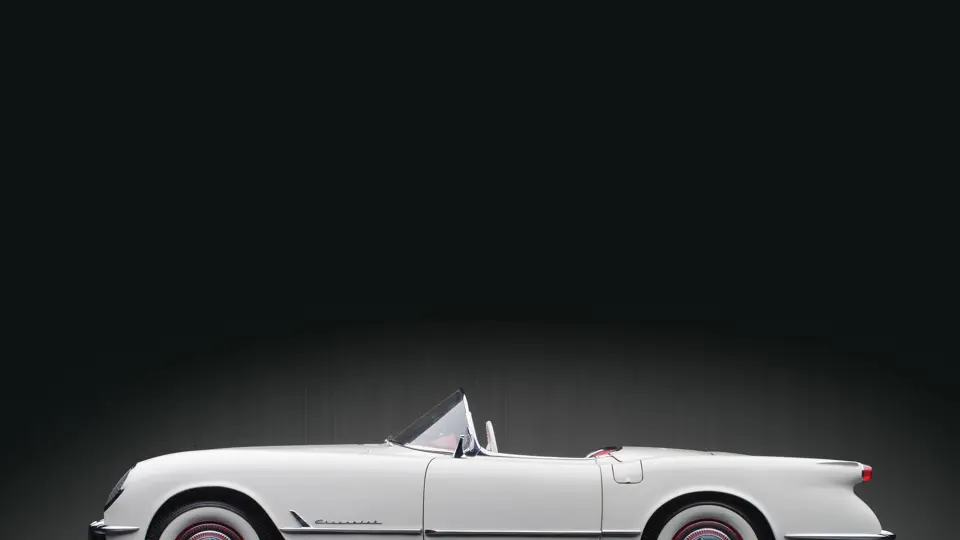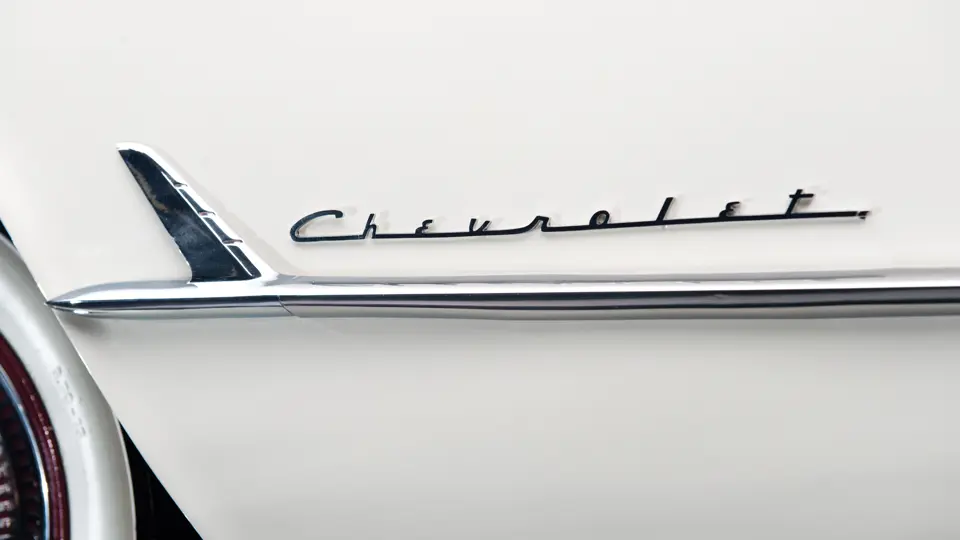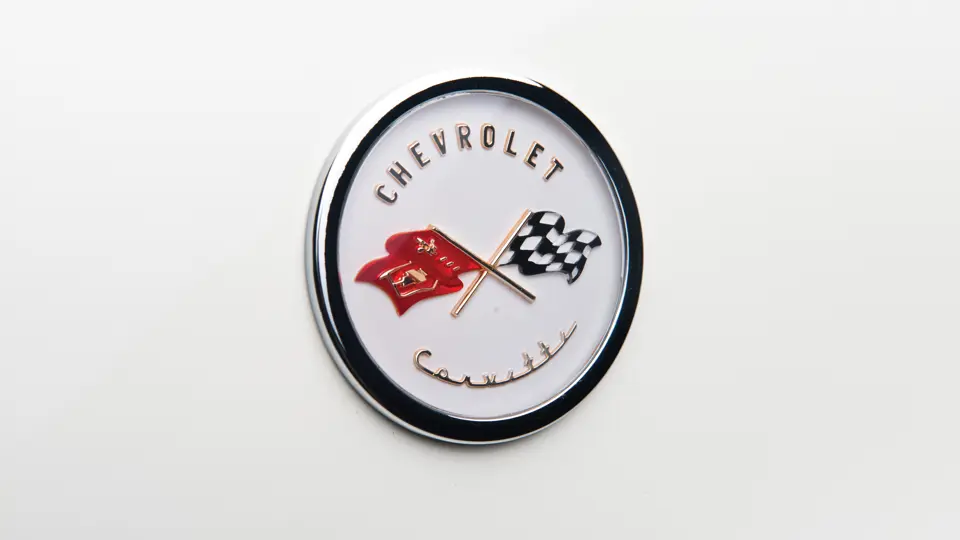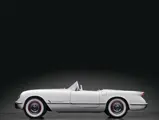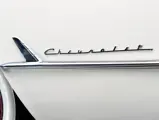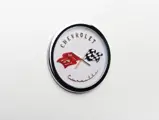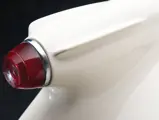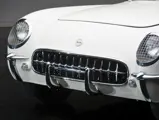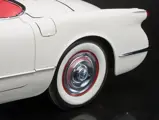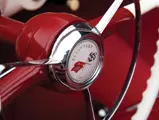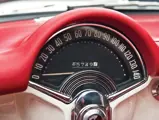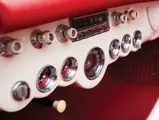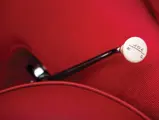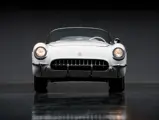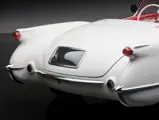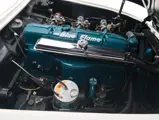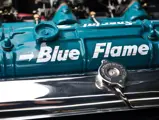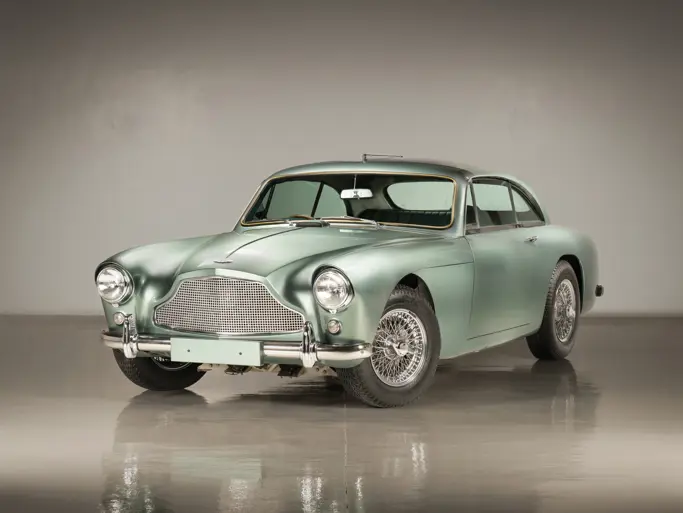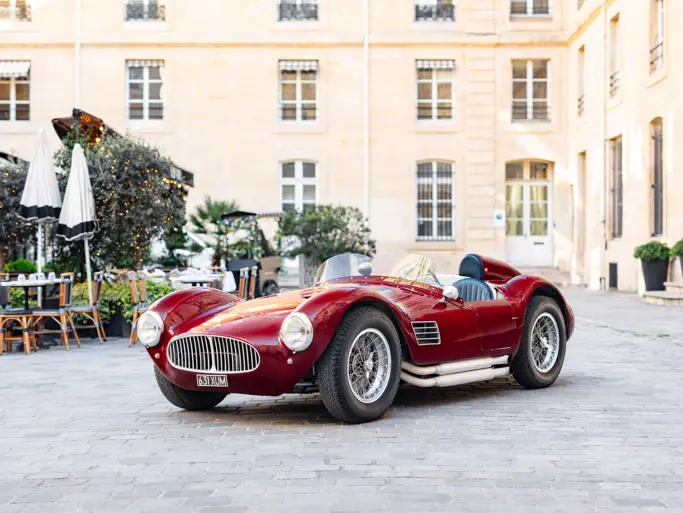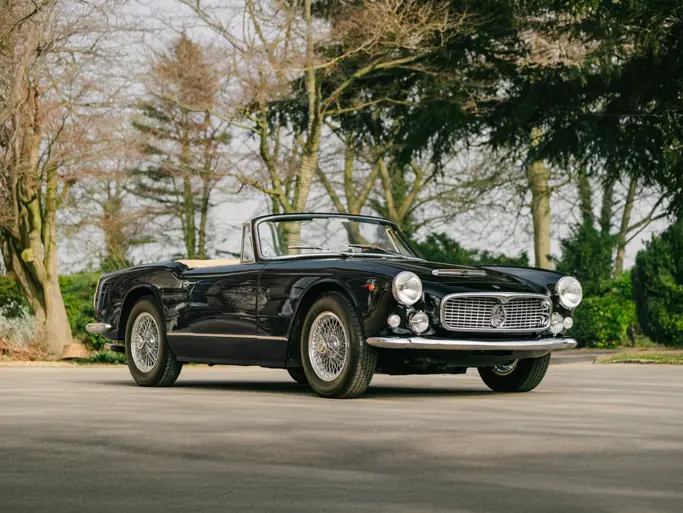150 bhp, 235.5 cu. in. “Blue Flame” OHV inline six-cylinder engine, three 1-barrel Carter carburetors, Powerglide two-speed automatic transmission, independent front suspension with unequal length A-arms and coil springs, live rear axle with semi-elliptic leaf springs, and four-wheel hydraulic drum brakes. Wheelbase: 102 in.
In the early-1950s, a team of GM engineers, headed up by Harley Earl, went to work trying to create a fiberglass-bodied car that had the appeal to compete with European sports cars. Harley Earl had excelled at swooping design since the 1920s and designed aircraft-looking features into the car, including round dials blended into a curved dash, all of which was sheltered under a roofline that stood just under 47 inches tall. The six-cylinder engine was positioned farther toward the rear, which gave the flat hood a long sleek appearance. By the time it was ready to be unveiled, it is reported that GM had spent over $1.5 million on the project.
Dubbed the Corvette “Dream Car,” it debuted at the GM Motorama show held at the stylish Waldorf-Astoria Hotel in New York City with astounding results. Following the first weekend of the Motorama event in New York, over 300,000 people had seen the car and spent $800,000 on GM products. Concluding Motorama’s U.S. tour, GM stated that over four million people had seen the car.
Production of the two-seat roadster started in June 1953, and by year’s end, a total of only 300 Corvettes rolled off the assembly line. This first year of Corvette production signified an important technical milestone: GM was the first major American car manufacturer to successfully mass-produce a vehicle whose underpan and bodyshell was made entirely of fiberglass.
The Corvette featured GM’s “Blue Flame” inline six, 235-cubic inch engine, with triple Carter carburetors and dual exhaust. The engine’s respectable 150 horsepower was transmitted to the road via a two-speed Powerglide automatic transmission. All 300 cars built in 1953 were visually identical, finished in Polo White with a Sportsman Red interior. The car was fitted with subtle pieces of chrome trim, which ran along either side, as well as wire meshing covering the headlights.
Compared to the Jaguar XK 120 and the MGA of the time, the Corvette was proportionally smaller, yet it was more responsive and superior in handling. Unable to resist its magnetism, virtually every auto enthusiast felt compelled to get behind the wheel of the new Corvette. Even though its initial success was impressive, it is doubtful that even those at GM could have thought the Corvette would achieve the success it has over the six decades it has been in production.
The car offered here from the Don Davis Collection was the 274th Corvette produced, and it underwent a body-off restoration performed by Blue Flame Restoration, of Pendelton, Indiana, the shop of respected 1953 Corvette expert Brett Henderson. Equipped with a Wonderbar radio, spinner wheel covers, center-mounted tachometer and speedometer, and bullet air filters, it presents well and authentically throughout, in its iconic colors and with high-quality finishes throughout, which are appropriate to how this car left the factory. Panel fit is notably good for one of these early cars, as is the concours-quality brightwork and proper safety glass windshield.
The restoration still shows 45,750 miles, and it is believed to have not been shown since its completion. Equipped with its original side curtains in the trunk, as well as a CD of documentation on the restoration, this is a clean and lovely example of a car that every Corvette enthusiast needs in their collection. It was the beginning of America’s Sports Car, and it all began right here.
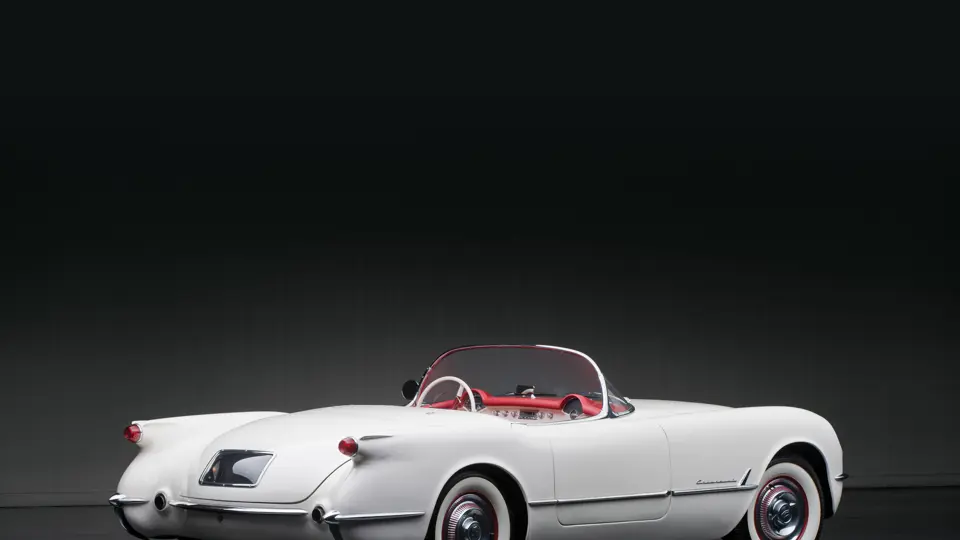

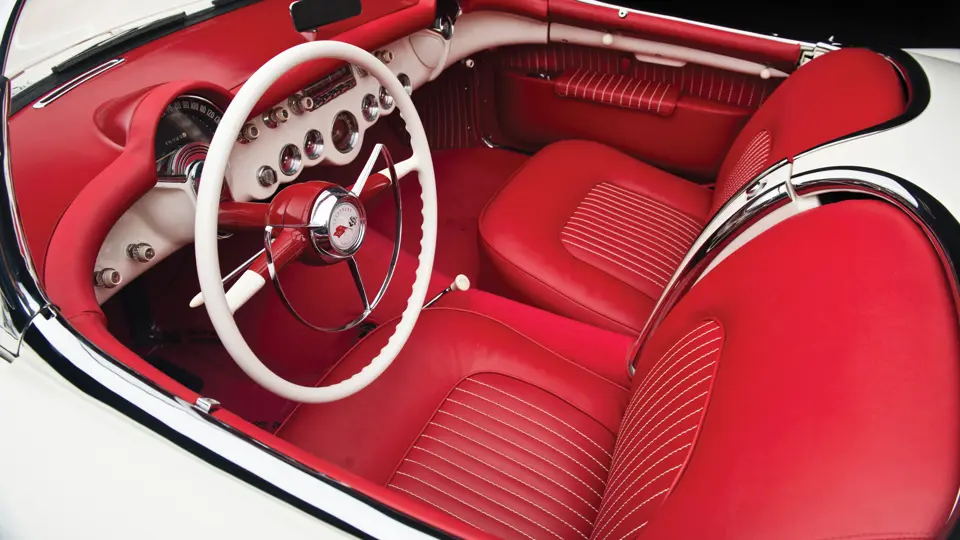

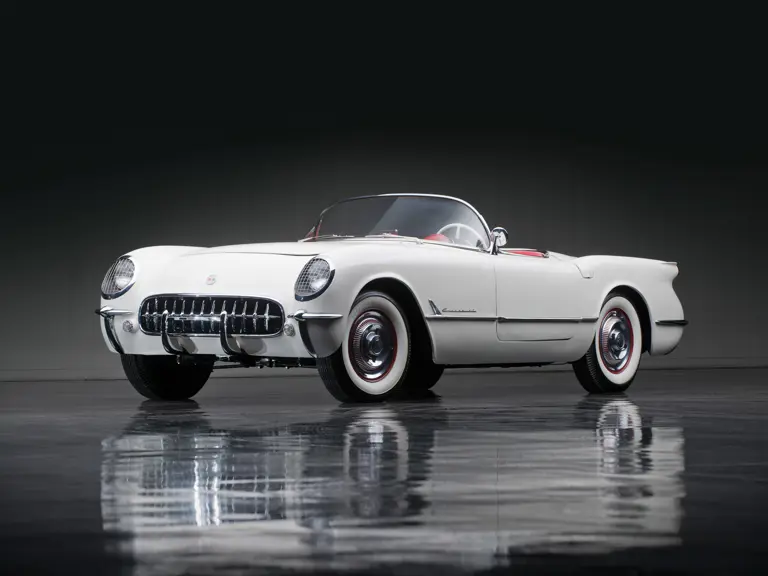
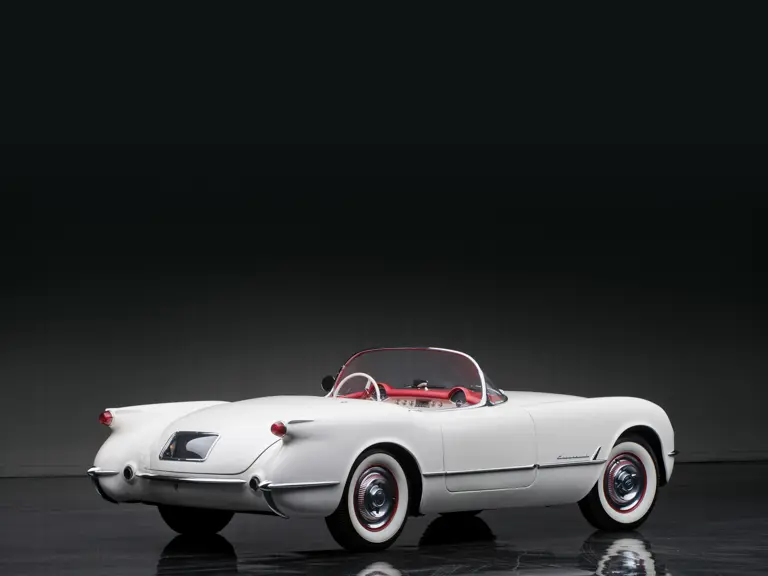
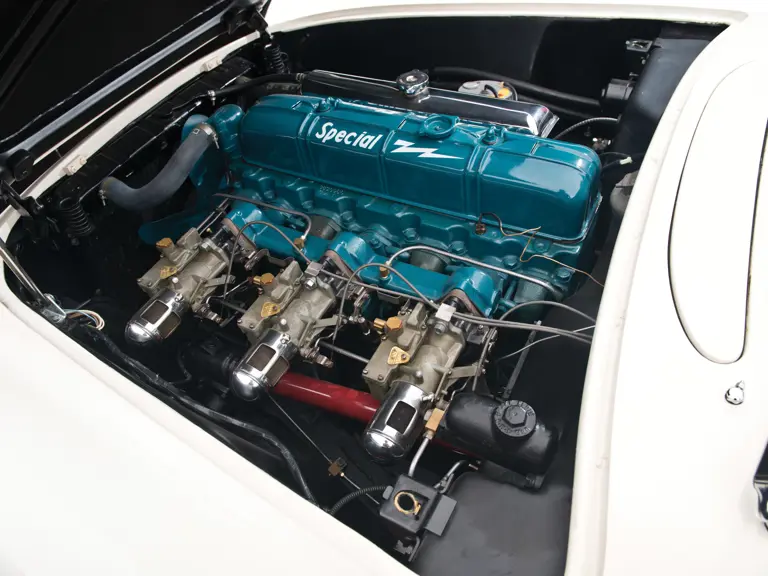
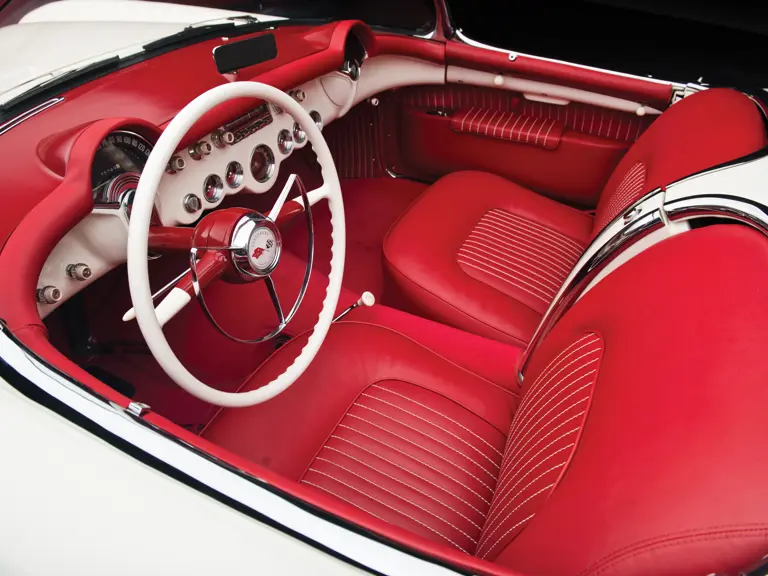
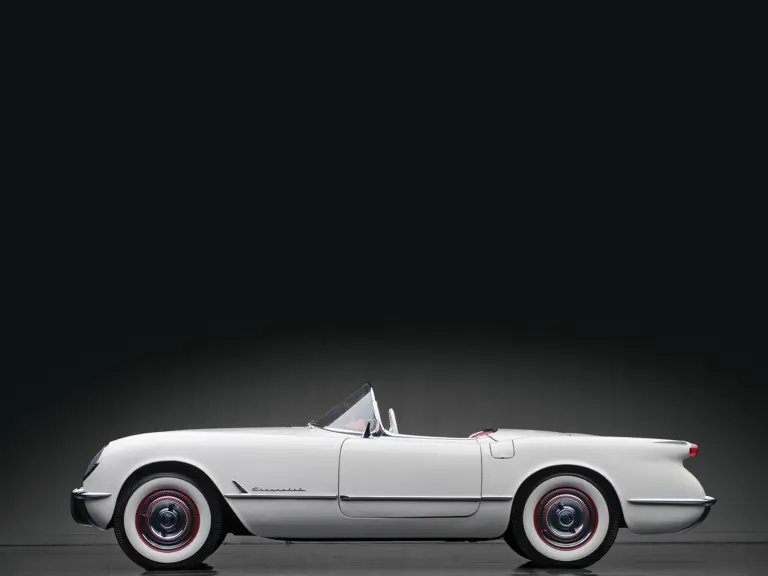
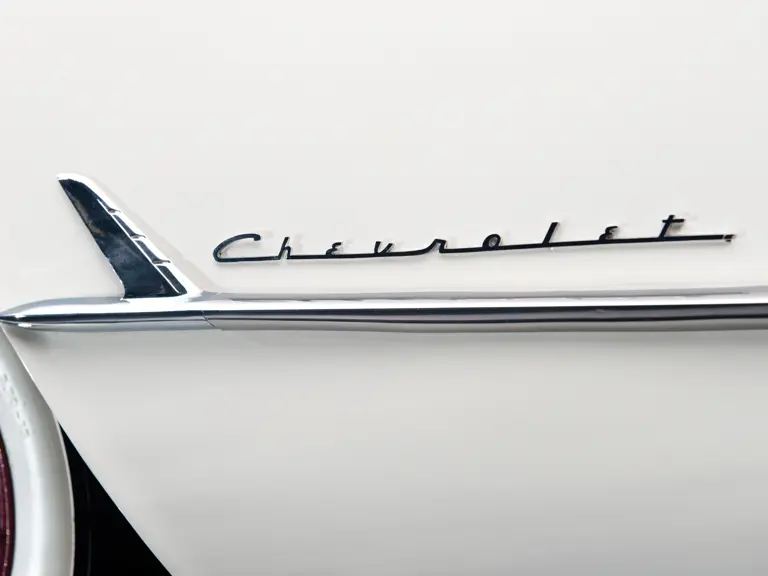
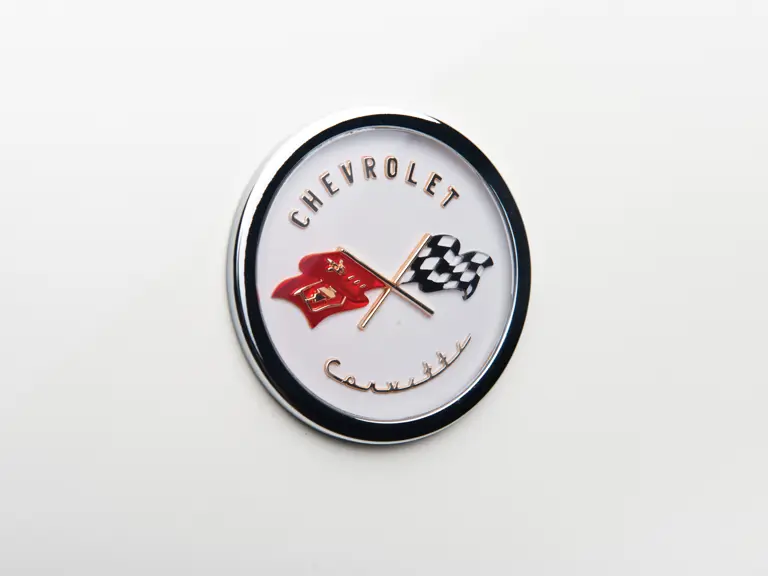
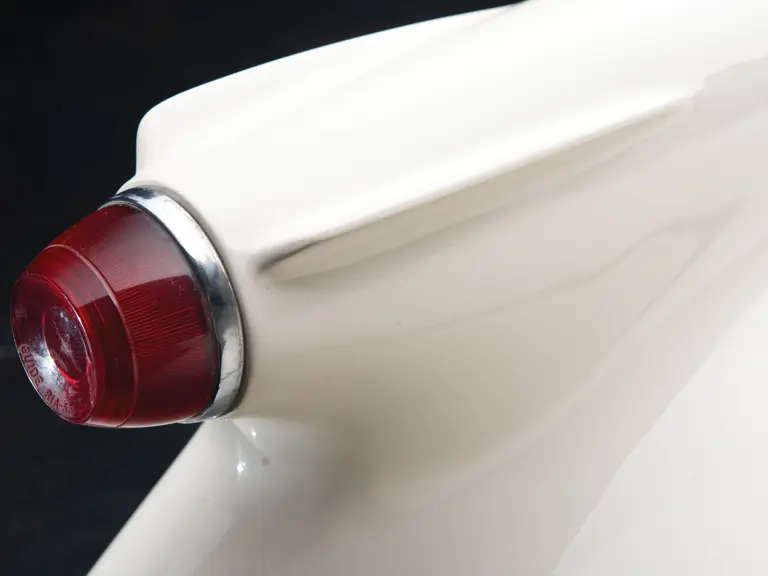
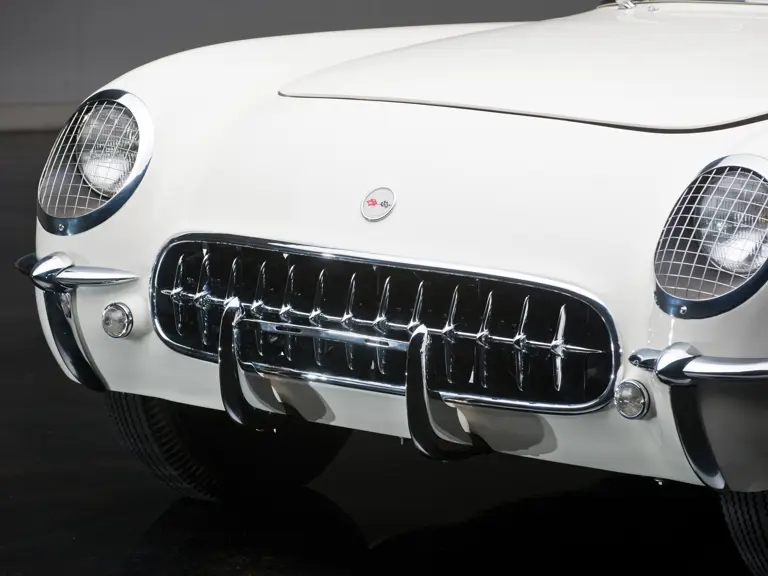
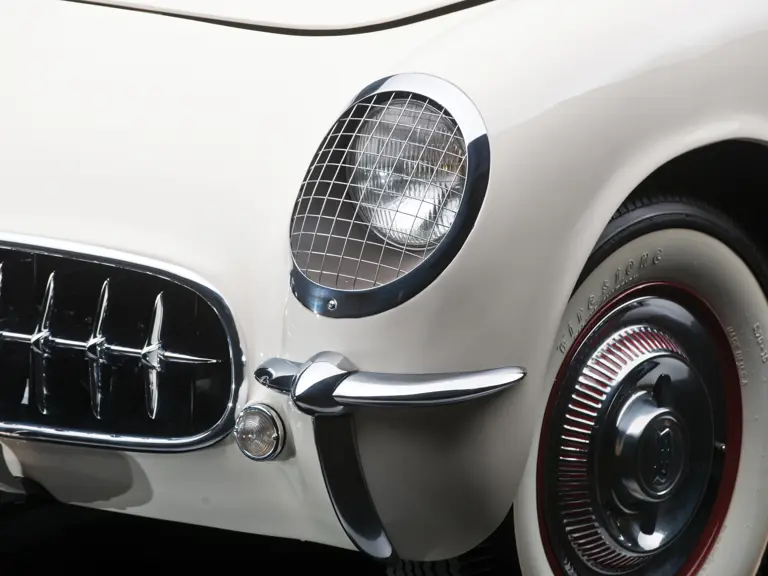
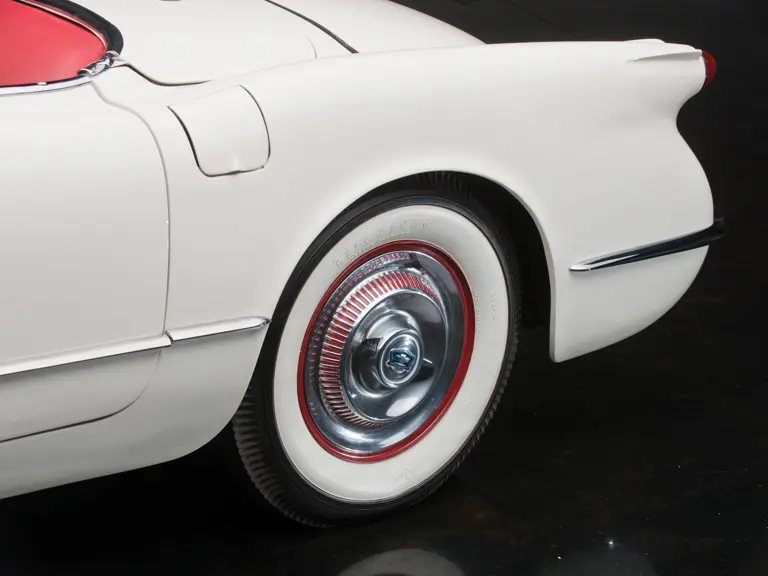
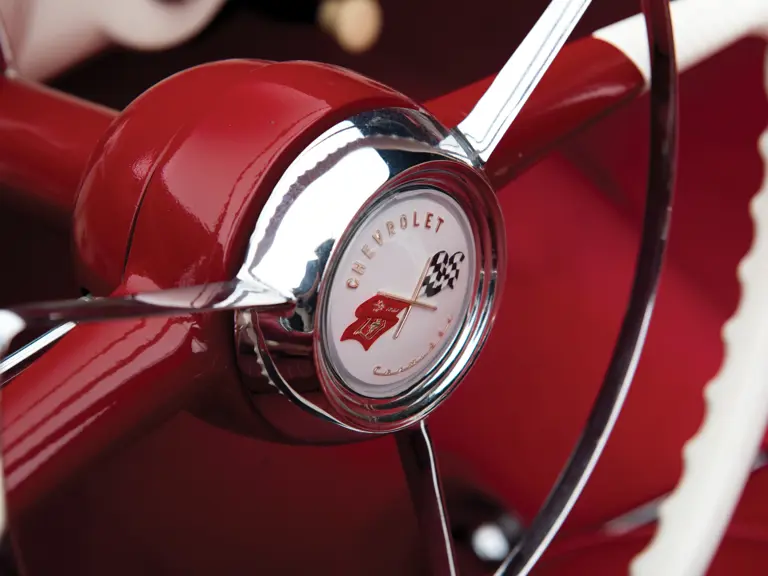
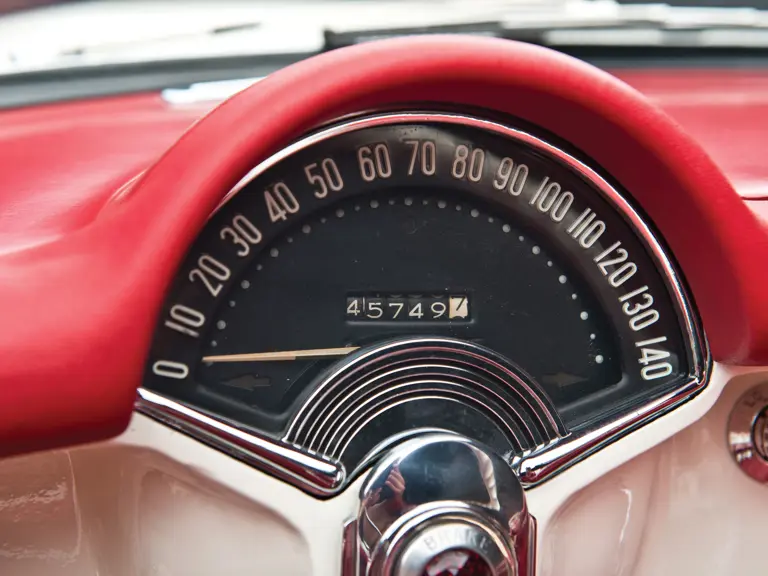
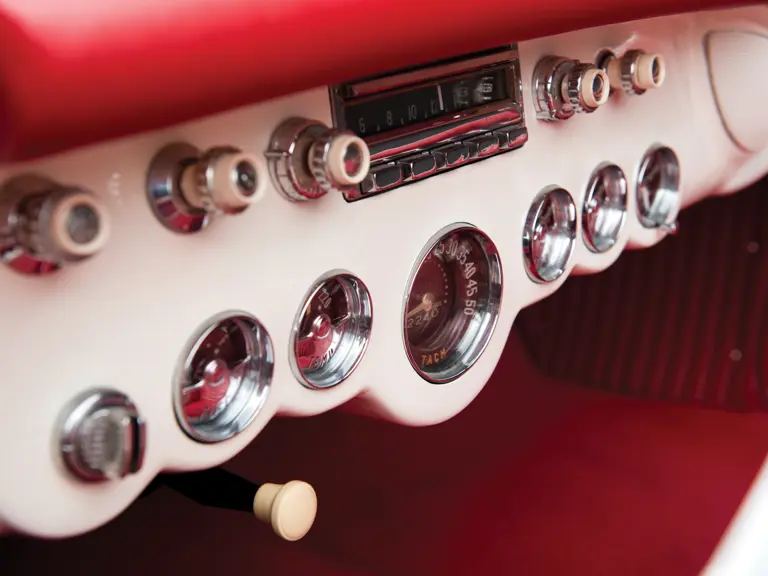
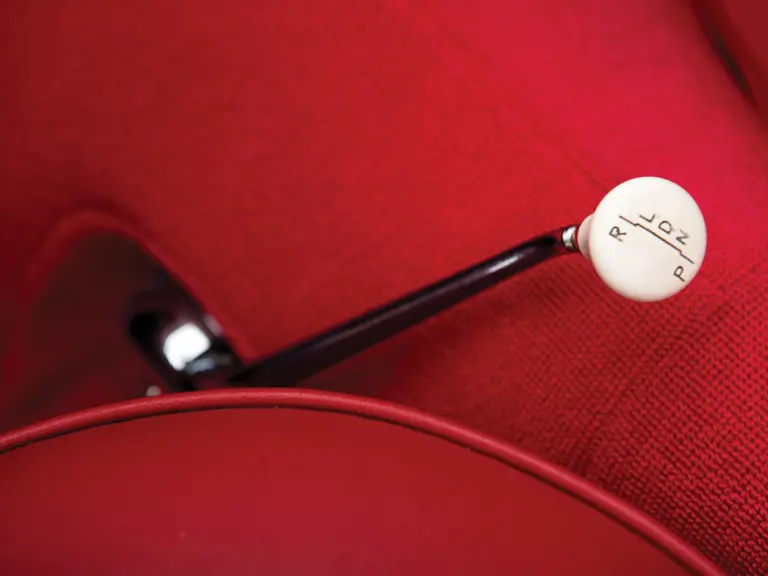
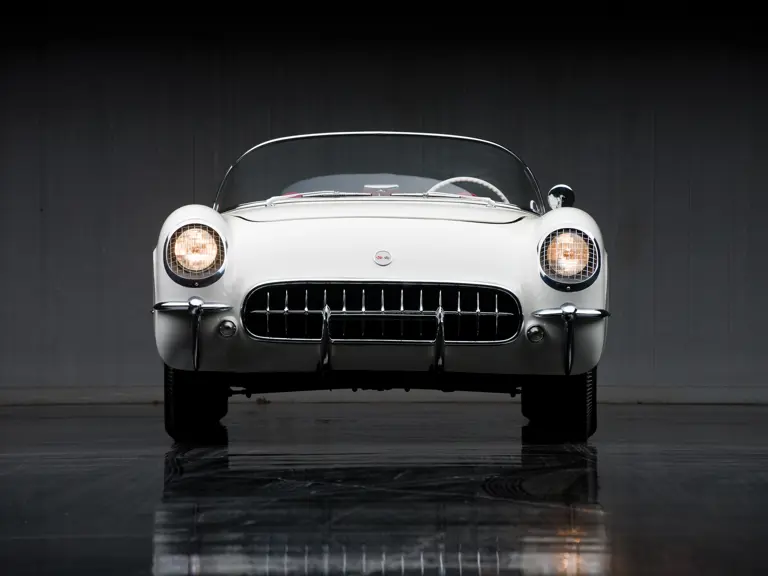
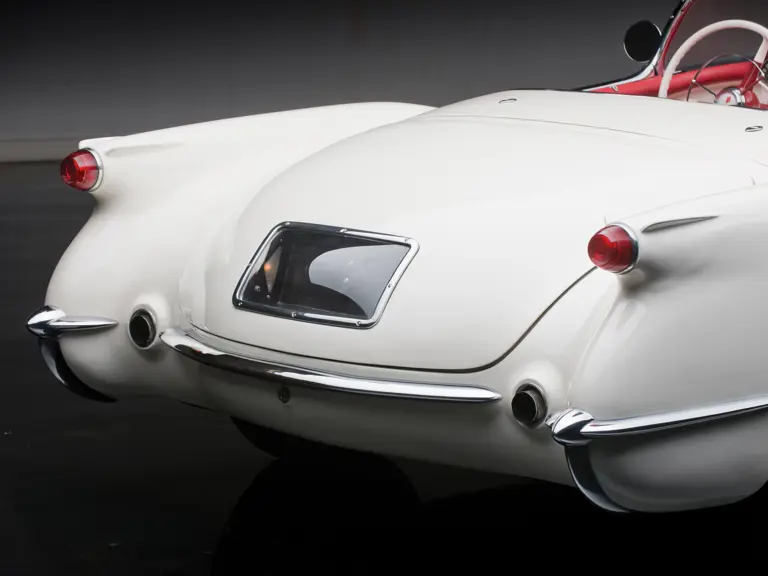
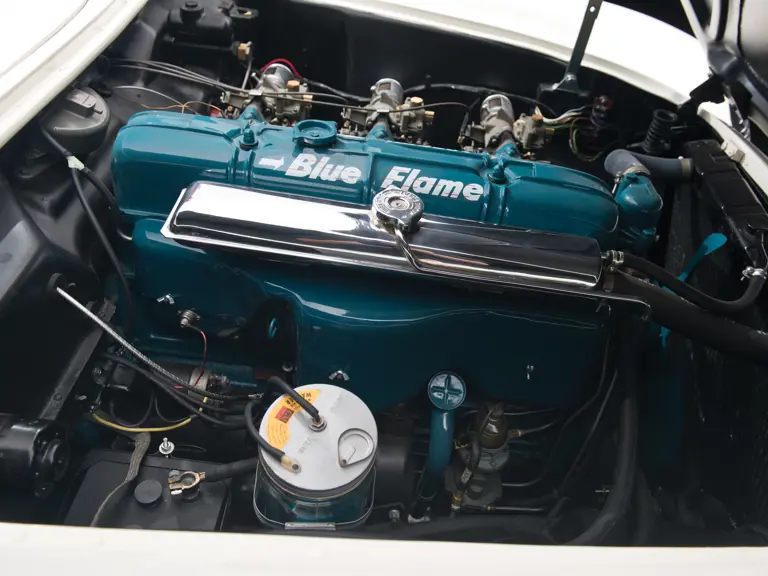
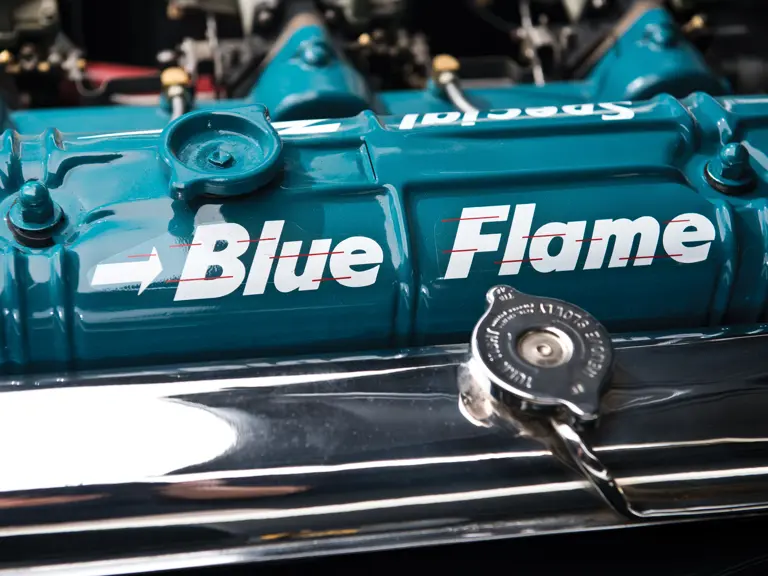
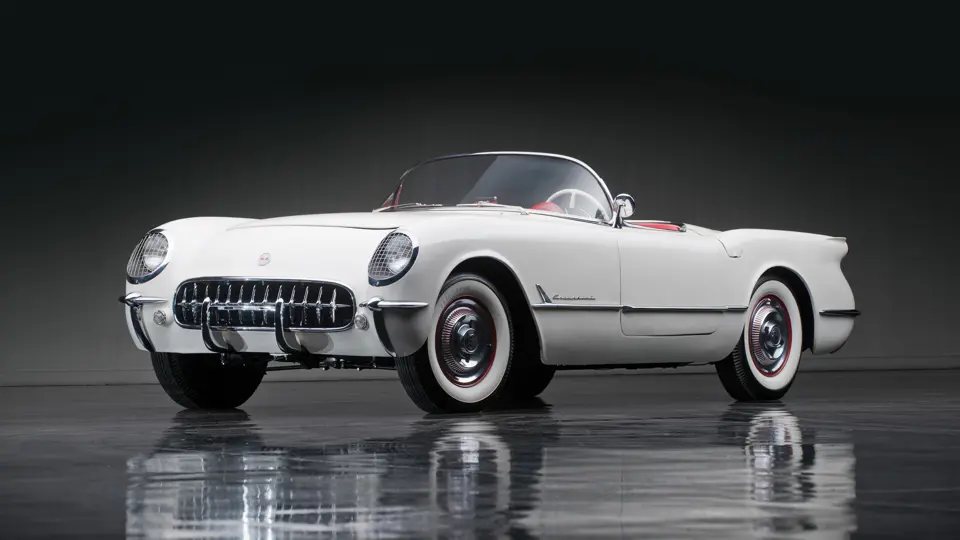
 | Fort Worth, Texas
| Fort Worth, Texas
